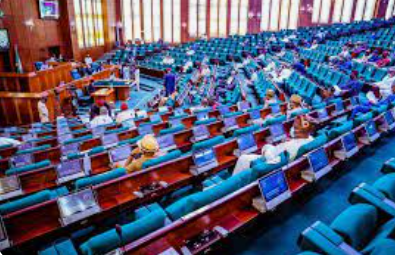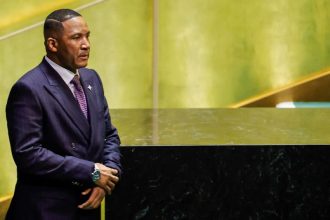The House of Representatives has begun moves to unlock the country’s oceanic resources, enhance professional standards and strengthen Nigeria’s competitiveness within the global blue economy.
Saturday PUNCH gathered that the repositioning efforts are contained in three reports presented to the Green Chamber by the Chairman of the House Committee on Oceans and Fisheries, Akarachi Amadi, on Thursday.
In a statement released by the committee’s media unit on Friday, Amadi said the proposed legislations aim to deepen research, expand technical capacity and boost innovation across critical segments of Nigeria’s maritime economy.
Nigeria, blessed with more than 850 kilometres of coastline, expansive continental shelves and some of West Africa’s richest marine ecosystems, holds enormous yet underutilised potential for fisheries development, aquaculture expansion, offshore services and blue-economy enterprise.
Amadi noted that the three bills were crafted to tap into these opportunities while improving local expertise for global relevance.
According to him, “The first report seeks an amendment to the Agricultural Research Council of Nigeria Act, Cap A12, Laws of the Federation 2004, to establish the Brackish Water Fisheries Research Institute in Ngo, Rivers State.”
The proposed institute, he explained, “will focus on research crucial to Nigeria’s brackish water and coastal fisheries—areas known to support some of the country’s most commercially viable aquatic species.”
The second report proposes the establishment of the Federal College of Fisheries Technology and Marine Engineering, also in Ngo.
“The institution is expected to drive manpower development, support technological innovation and address longstanding gaps in fisheries management and marine engineering—two pillars essential to any country seeking to maximise its ocean wealth,” he said.
The third report recommends the creation of a Federal Institute for Diving Technology in Ibeju-Lekki, Lagos State.
“Designed to offer full-time programmes in deep-sea and offshore diving, the institute will support the growing demands of Nigeria’s offshore, maritime and underwater engineering industries, particularly as the country expands its participation in oil, gas and marine infrastructure development,” Amadi added.
He expressed hope that the passage of the bills would promote the sustainable exploitation of Nigeria’s marine and fisheries resources, uplift professional standards and position the country more competitively within the global blue-economy value chain.
Amadi added that with the right legislative support, Nigeria can transform its fisheries and maritime sectors into engines of national growth, job creation and long-term economic stability.









